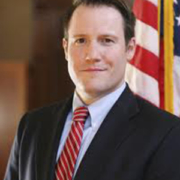Problem
Over the last year and a half, the over policing of certain segments of our communities, particularly for Black and Brown residents, has reached a point of reckoning. Communities across the county have faced terrible incidents of excessive use of force at the hands of police, and Montgomery County, Maryland has not been immune. Here in Montgomery County the data demonstrates disparities. While Black residents make up about 20 percent of the county, they make up 55% of use of force incidents. With Latino residents included, that accounts for over 75% of use of force incidents by police. Unfortunately, we have had incidents of police killing black residents and have also had very public incidents of excessive use of force. But for cell phone and body cameras, these incidents would not have come to light.
Solution
We drafted a law to amend the police use of force policy. This policy prohibits a police officer from using deadly force except when absolutely necessary, when no other alternatives are available. This includes prohibiting neck or carotid restraints and striking a restrained individual. The bill bans no-knock warrants and shooting from or at moving vehicles, unless the vehicle is being used as a weapon and the circumstances would authorize the use of deadly force.
The policy must provide guidelines protecting individuals without regard to race, sex, gender identity or sexual orientation. Rules must protect vulnerable community members and populations disproportionately impacted.
The law requires officers to stop or attempt to stop the use of excessive force or the commission of a crime by another officer. Officers who intervene must not be retaliated against or disciplined for taking action.













